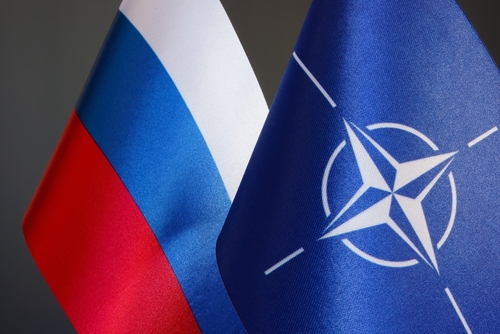
The Russian Influence in Some Balkan Areas is Becoming More and More Invasive and Potentially Dangerous in the Current Geo-Political Dynamics
The Russian presence in the Balkans has ancient origins and there have been numerous attempts at consolidation over the last few decades. Since the disintegration of the former Yugoslavia, the Kremlin has assumed a particularly important role in the management of the balance, always very fragile, between the “new” nations. While in the nineties the Russian military presence in the Balkan territories was considerable, already from the first settlement of Putin, there has been a sort of preventive withdrawal of most of the troops, in view of an ever-changing international political scenario.
In the last 15 years, however, there seems to have been a new interest on the part of Russia, aimed at internal affairs in the Balkan area, also due to the secessionist aims of Kosovo, always supported by NATO but, at the same time, strongly hampered by Russia, Serbia’s economic and political partner. Serbia, in fact, intending not to grant independence to the Kosovars, as happened, through a peaceful referendum for Montenegro, has benefited from the support of the Kremlin in an open challenge to NATO.
To tell the truth, even some European nations, including Spain, Greece, Slovakia and Romania, have said they are against the independence of Kosovo, but Russia has gone further by assuming the right, in the past, to threaten the invasion of Georgia in the event that Kosovo becomes independent, so as to use the Kosovar precedent, in favour of its expansionist aims. Such extremely hypocritical behaviour on the part of the Kremlin has made the situation in the Balkans increasingly delicate.
Currently, relations between Russia and Serbia are very solid, both in the field of commercial exchanges and from a purely political point of view and, with Serbia’s request in recent years to enter Europe, while revealing its intention not to join the Atlantic alliance, Russia is evaluating the hypothesis of fomenting conflicts in the Balkans to push the international forces, currently intent on defending Ukraine from the Russian invasion, to divert part of the aid, military and humanitarian, to the Eastern Europe, thus leaving Russia with the possibility of conducting the military operations currently underway in Ukraine more easily.
Russian propaganda in Serbia is increasingly invasive and is perpetrated through an even more severe policy towards Kosovo’s independence intentions, also sanctioned by the veto power, exercised by Putin, in the United Nations Security Council, to prevent greater international recognition of Kosovo as an independent state. This move made diplomatic relations with Serbia even more solid and increased Serbian admiration for Putin to the point of registering numerous demonstrations in favour of the invasion of Ukraine, all over Serbia.
In response to Russian support for Serbia, President Vucic, despite having condemned the Russian invasion of Ukraine, has nonetheless refused to implement sanctions against the Kremlin, also in view of new commercial collaborations in the coming years, between the 2 countries. There are now several indications that suggest total support from Serbia towards Russia and among these there is also the significant increase in flights between Belgrade and Moscow, the even more bigger amount of Russian weapons imported into Serbia and the suspicion that there may even exist secret bases in Serbian territory, right on the border with Kosovo, apparently used by Russian for active control of the delicate situation and, eventually, for immediate intervention.
Over the past few years, therefore, Russian propaganda in the Balkan nations has been based on unconditional support for the Serbs on the long-standing issue of Kosovo and, with the invasion of Ukraine, the Kremlin intends to demonstrate to Serbia its own potential in case help is needed for the forced annexation of Kosovo or any other Balkan area intending to obtain independence.
Alessandro Fiorentino



 Subscribe
Subscribe